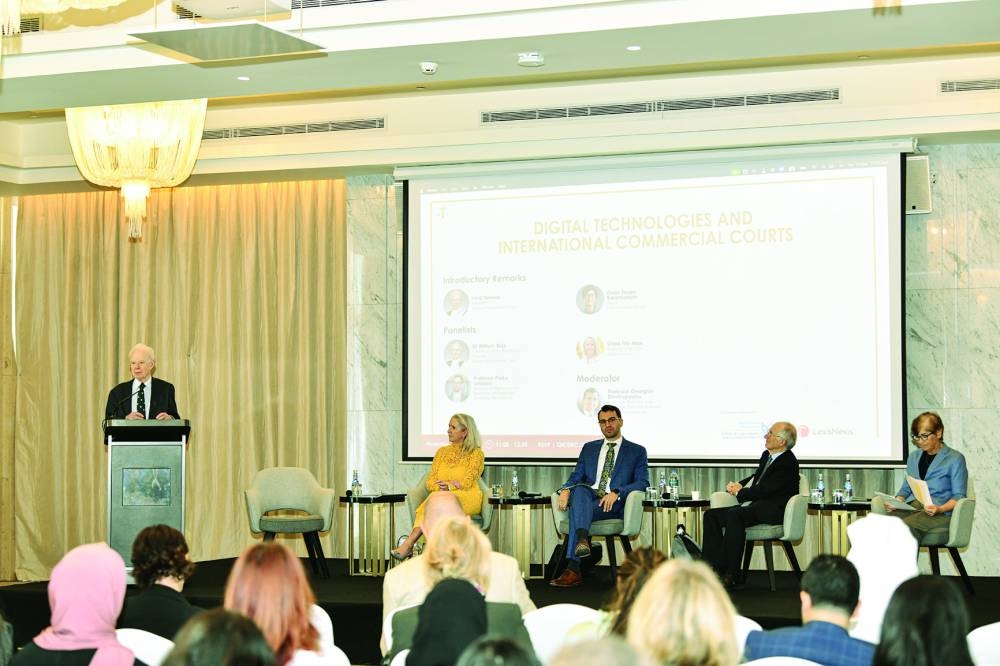The growing importance of digital technology in global commerce and the critical role of international courts in resolving complex technology-related disputes came under scrutiny at an event organised by Qatar International Court and Dispute Resolution Centre (QICDRC) and Hamad Bin Khalifa University (HBKU) College of Law.
The event, which was held in collaboration with Lexis Nexis, focused on the role of international commercial courts in resolving digital technology disputes.
As part of the QICDRC-HBKU lecture series, the event brought together legal experts, academics, and practitioners to discuss how international commercial courts manage digital disputes and leverage digital technologies in their proceedings.
The session also explored whether these courts are the most suitable for digital technology-related disputes compared to alternative dispute resolution (ADR) and online dispute resolution (ODR) methods.
“In a world increasingly shaped by digital innovation, the role of international courts in managing disputes related to these technologies is crucial. This event highlighted the need for legal systems to stay ahead of the curve and ensure they are well-equipped to address the challenges posed by the digital economy," said Lord Thomas, President of the Qatar International Court and former Chief Justice of England and Wales.
Highlighting that courts need to embrace technologies like artificial intelligence (AI) in commercial cases, he said while some states permit digital documents, the business community remains cautious. "Openness to change is crucial, as technology can enhance judgments without sacrificing quality," he added.
The panel discussion, moderated by Professor Georgios Dimitropoulos, Professor of Law at HBKU and WTO Chair of International Trade Law, featured distinguished speakers, including Lord Thomas, William Blair (Chairman of the Qatar Financial Centre Regulatory Tribunal and former Judge-in-Charge of the Commercial Court of England and Wales), Linda Fitz-Alan (Registrar and Chief Executive Officer of the Abu Dhabi Global Market Courts), and Professor Pietro Ortolani (Professor of Digital Conflict Resolution at Radboud University).
"This event underscores the increasing importance of digital technologies in modern legal systems. By engaging with international experts, we are better positioned to understand the complexities of digital disputes and enhance Qatar’s legal landscape in this evolving field, Susan Karamanian, the Dean of HBKU College of Law, said.
Panelists shared their perspectives on how these courts can adapt to the rapidly evolving digital landscape.
“A court’s readiness is essential in deciding whether to adopt AI, as premature use could impact stakeholders. Technology should also be customised to each court’s unique needs, not vice versa,” said Linda Fitz-Alan.
"Legal frameworks are slow to change, but tools like digital processes and paperless courts enable gradual progress and streamline authentication," Ortolani said.

Lord Thomas, President of the Qatar International Court, addresses QICDRC-HBKU College of Law lecture.
